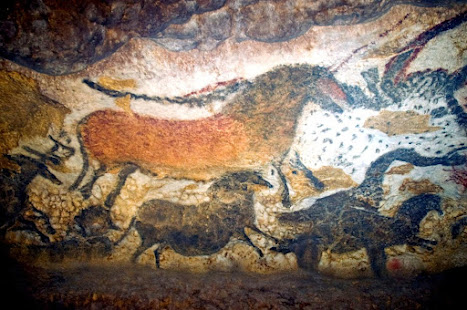The Nicolaitans: Who Were They? Who Are They?
The Nicolaitans: Who Were They? Who Are They?
Will Rochow
Jesus said, “But you have this in your favour:
You hate the practices of the Nicolaitans, which I also hate.” (Revelation 2:6)
Over
the years in reading the Book of Revelation, I’ve often pondered the
question of just who those Nicolaitans were that Jesus alludes to in
Revelation 2:6 and again in verse 15. Were they just a bunch of heretics
from the early church? If so, what was it that made them heretics? Is
there something we can learn from them? Perhaps more importantly, is it
possible that the spirit of the Nicolaitans lives on in many of our
Christian churches today?
First of all, what does church history
tell us about them? There are many scholars who claim that the
Nicolaitans were followers of Nicolas, one of the deacons listed in Acts
6:5. Apparently, according to Irenaeus, one of the key teachings of
Nicolas was that “the flesh must be abused,” implying that the body must
be kept under control. Supposedly the Nicolaitans misinterpreted, or
changed his teaching, to mean that a person could live any way they
wanted to and that anything to do with the flesh was really
inconsequential and ultimately of no concern at all. This led to the
belief by the Nicolaitans that people could live in any fashion they
wanted to, regardless of how wicked or immoral a lifestyle that choice
was. This seems to be what several of the early church fathers have
said, however according to several modern day scholars, there is really
not much more information available. Ultimately, any association of
Nicolas to the Nicolaitans is mostly filled with speculation.
There
is another school of thought on who the Nicolaitans were. To see this,
we must first look at the etymology of the word “Nicolaitans.” It comes
from two Greek words, “Nike” (or “Nikos”) and “Laios” (or “Laos”). The
first word (Nike) means to conquer, subdue, or overcome. The second word
(Laios) means a body of people, or the common people. When we put these
two words together, we arrive at a definition of Nicolaitans as
“conquerors of the common people.”
Then, in Revelation 2:14-15,
the Nicolaitans are spoken of in the same breath as the teaching of
Balaam. Now I’m less of a Hebrew scholar than a Greek scholar, but as I
understand it, the word “Balaam” also comes from two words; “beli” which
means “conqueror”, and “haam” which means “the people.” Put together,
Balaam seems to be the Hebrew equivalent of the Greek Nicolaitan, or
“conqueror of the people.”
If we look at it this way, is it
possible that the Nicolaitans were people within the body of believers
in Ephesus and Pergamum who came to have a major controlling influence
among the people? By virtue of their name, were they people who
positioned themselves above the common people and who claimed some sort
of authority over them? Certainly if we look at the etymology of the
word “Nicolaitans” this does seem likely.
While Balaam did not
directly curse the people as Balak requested (see Numbers 22-25),
somehow he did manage to turn the Israelites away from what God had in
mind for them. We see this in Numbers 31:16, “They [the Midianite women]
were the ones who followed Balaam’s advice and were the means of
turning the Israelites away from the Lord in what happened at Peor so
that a plague struck the Lord’s people.” What happened at Peor? It was
there that the Israelites became involved with the Moabites (Num. 25:
1-3; Rev.2: 14), the very thing the God told them not to do, which
ultimately lead to the death of 24,000 people (Numbers 25:9). The
invasion of Moab that King Balak feared never happened, but the
Israelites were still conquered.
It is interesting to note that
there is yet another word that comes out of the Greek word “Nicolaitan,”
and that is our word “laity.” While the word originally simply meant
“people,” as early as the second century it had already come to mean
those people that are not ordained to the ministry. Therefore, for those
who use the word “laity,” they must believe in a distinction (or
hierarchy) in the body of Christ between the professional clergy and the
average common people. According to the so-called “Early Church
Fathers,” by the second century the clergy system was already
established with bishops in various churches. Unfortunately there is no
New Testament support for either “laity” or “clergy.” On the other hand,
the New Testament does teach of a priesthood of all believers equally
(eg. 1 Peter 2: 5,9) and that the only High Priest (clergy) that any of
us have is Christ alone (eg. Hebrews 7).
The implication of
those who support a clergy system is that the common people cannot
possibly hear from God on their own, so they need a professional to do
so for them. It is an Old Testament mindset, not unlike the people
telling Moses “Speak to us yourself and we will listen. But do not have
God speak to us or we will die” (Exodus 20:19). The truth, however, for
the Christian is found in 1 John 2: 26-27, “I am writing these things to
you about those who are trying to lead you astray. As for you, the
anointing you received from him remains in you, and you do not need
anyone to teach you. But as his anointing teaches you about all things
and as that anointing is real, not counterfeit – just as it has taught
you, remain in him.”
Whose anointing teaches you and me? Does a
minister, pastor, or priest’s personal anointing teach us? No, because
each of their personal anointing can teach only them individually. So
then whose anointing teaches you and me? It is our own personal
anointing that each of us receives the very minute that we receive
Christ that teaches us, just as it teaches everyone else individually.
Anyone who says different we are to count among “those who are trying to
lead us astray.”
It would seem very likely that the whole clergy
system had its roots in the Nicolaitans. Whether or not it is said in
so many words, churches with a clergy system (minister, pastor, priest,
etc) advocate the elevation of professional “ministers” over common
people. Churches with a clergy system are churches that (like our
earlier Nicolaitan definition) conquer and subdue the common people.
Clergy influence the common people and claim all sorts of authority over
them.
A great example is a fellow named Diotrephes. 3 John 9-10
says, “I wrote to the church, but Diotrephes, who loves to be first,
will have nothing to do with us. So if I come, I will call attention to
what he is doing, gossiping maliciously about us. Not satisfied with
that, he refuses to welcome the brothers. He also stops those who want
to do so and puts them out of the church.” Diotrephes had a Nicolaitan
spirit about him. He elevated himself and oppressed the common people.
He set himself up as THE Minister, THE Pastor, THE Priest. In so doing
he conquered and subdued the common people. Churches that have clergy
systems today are no different; they also have a Nicolaitan spirit about
them.
Our risen Lord said to the church in Ephesus, “But you
have this in your favour: You hate the practices of the Nicolaitans,
which I also hate.” Does this mean that Jesus is saying that He hates
the clergy systems that have crept into the churches? Yes, I think He’s
saying exactly that. Please notice, He’s not saying that he hates the
people that have become clergy; rather He’s saying that He hates the
clergy systems. It’s the proverbial “love the sinner, hate the sin”
relationship.
So
why would Jesus hate the Nicolaitan clergy systems that have long since
become so prevalent in the church? I believe that the answer is because
these systems have created a two-tier form of Christianity. They have
elevated a minority of “professional” people over the “common” people.
They have conquered and subdued the common people to such an extent that
the Body of Christ no longer functions like Christ intended His body to
function. The common people have become lethargic spectators and often
cannot seem to even hear the Holy Spirit for themselves. They have
caused the common people to think that only the clergy can serve God and
that ministry is their job alone. The priesthood of believers that God
intended for the church has instead become only the priesthood of the
clergy.
To sum up, anything that causes the church to function in
a way contrary to what God intended is a Nicolaitan spirit that Christ
Jesus hates. The sin of Balaam led to the Israelites disobeying God by
mingling with the surrounding nations through idolatry. The Nicolaitans
likewise disobeyed God by creating a clergy system in the church through
which the few essentially conquered the many. Either way, the problem
is the same. The problem is the elevating of the flesh over the walking
in the Spirit. The problem is that, instead of the fathers feeding the
children (as it’s supposed to be), it is the children who are feeding
the fathers. The problem is ultimately failing to obey God and walking
instead according to our own carnal desires. Anytime when this happens,
we have also become Nicolaitans.
Lord, help us to see the truth in this. Lord, help us to walk in humble obedience. Amen.
“He who has an ear, let him hear what the Spirit says to the churches” (Revelation 2:7).
above article copied from: http://rethinkingfaithandchurch.rochow.ca/2009/02/nicolaitans-who-were-they-who-are-they.html




Comments
Post a Comment